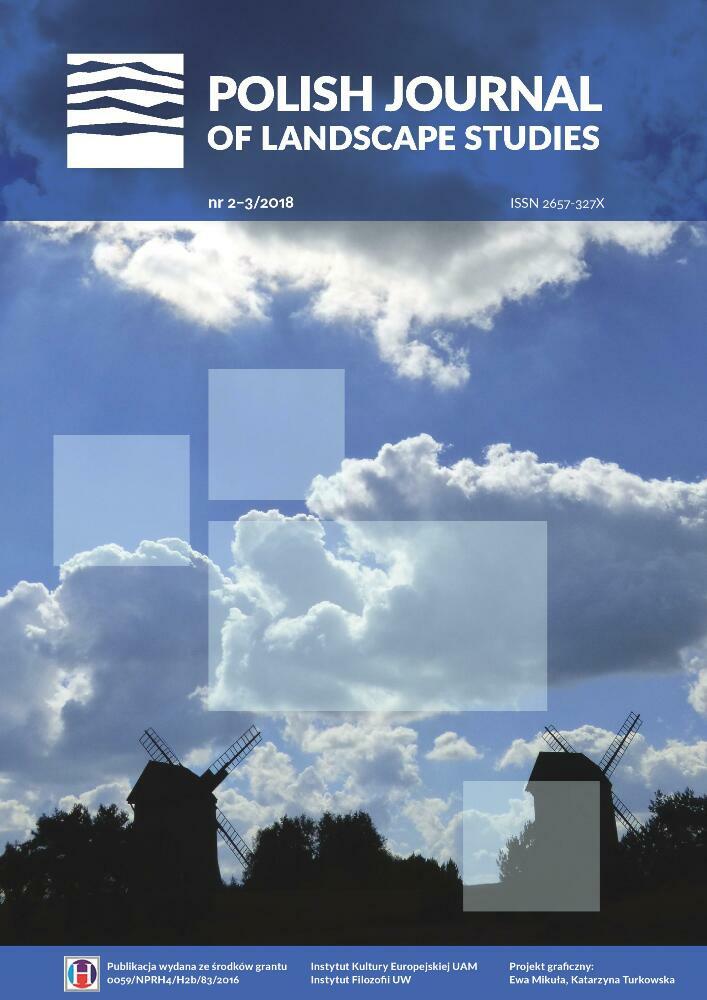Abstrakt
The article analyzes the project of green spaces to accompany a 1920s residential development in Warsaw. The estate was intended to provide a housing minimum for the poorest inhabitants, as well as educate workers how to live an urban lifestyle. It was presumed that access to greenery, nature, a site of leisure and the smell of flowers cannot be a privilege of the bourgeoisie. Thus, the garden policy proved an emancipatory gesture, an assertion of the right to the city and a means of forging civic mindsets and attitudes. The author asks whether the innocent gardens became workshops in Sennett’s understanding, shaping principles and rituals of cooperation, and examines how they helped to promote a new citizen in a new estate.enBibliografia
Bello, Walden. 2009. Food Wars. London: Verso.
Brukalska, Barbara. 1948. Zasady społeczne projektowania osiedli mieszkaniowych [Social principles of designing housing estates]. Warsaw: Wydawnictwo Ministerstwa Odbudowy.
Carlsson, Chris. 2008. Nowtopia. How Pirate Programmers, Outlaw Bicyclists, and Vacant-Lot Gardeners Are Inventing the Future Today! Edinburgh: AK Press.
Czałczyńska-Podolska, Magdalena. 2010. “Ewolucja Placu zabaw. Koncepcja dla dzieci w Europie i Stanach Zjednoczonych” [Evolution of the playground: An idea for children in Europe and the United States]. Przestrzeń i forma13, 73—88.
Harvey, David. 2012. Rebel Cities: From the Right to the City to the Urban Revolution. London: Verso.
“Kolonia ogródków rodzinnych na Żoliborzu” [The colony of family gardens in Żoliborz]. 1933. Życie WSM, October.
Kuzańska-Obrączkowa, Maria. 1966. Koncepcje wychowawcze Robotniczego Towarzystwa Przyjaciół Dzieci 1919—1939. Analiza założeń i funkcjonowania placówek [Educational guidelines of Workers’ Society of the Friends of Children 1919—1939: An analysis of the premises and functioning of establishments]. Wrocław: Zakł. Nar. im. Ossolińskich.
“Kwietniki” [Flowerbeds]. 1931. Życie WSM, June, 8.
Laupheimer, Gertruda. 1931. Gartenstadt XI. Berlin.
Miasto2077. 2016. “Szkoła miejskich ogrodników rusza w Warszawie” [A school of urban gardening commences in Warsaw]. May 6. http://www.miasto2077.pl/szkola-miejskich-ogrodnikow-ruszaw-warszawie.
Miessen, Marcus. 2007. The Violence of Participation. Berlin: Sternberg Press.
Syrkus, Helena. 1975. Ku idei osiedla społecznego 1925—1975 [Towards the idea of a social estate 1925—1975]. Warsaw: PWN.
Nowicka, Maria. 2009. “WSM—RTPD—Szklane Domy” [WSM—RTPD—glass houses]. Życie WSM, September.
“O estetykę dziedzińców osiedla” [“On the aesthetics of estate yards”]. Życie WSM, March.
Ossowski, Stanisław. 1967. Dzieła, Tom III, Z zagadnień psychologii społecznej [Collected works, volume III, issues insocial psychology]. Warsaw: PWN.
Próchnik, Adam. 1934. “Polityka ogrodnicza WSM” [Horticultural policy of the WSM]. Życie WSM, July.
Pusey, Andre. 2010. “Social Centres and the New Cooperativism of the Common.” A Journal of Radical Theory, Culture, and Action 4(1), 176—98.
Sennett, Richard. 2013. Razem. Rytuały, zalety i zasady współpracy[Together: The Rituals, Pleasures, and Politics of Cooperation]. Translated by Jan Dzierzgowski. Warsaw: Warszawskie Wydawnictwo Literackie MUZA SA. [Original edition: Together: The Rituals, Pleasures, and Politics of Cooperation, London: Penguin Books, 2013]
Sprawozdanie WSM [WSM Report]. 1930. Warsaw.
Sprawozdanie z działalności WSM za rok 1938 [WSM Report for 1938]. 1939. Warsaw.
Swobodowa, Maria. 1963. “Ośrodek szkolno-wychowawczy na Żoliborzu” [Educational establishment in Żoliborz]. In Eksperymenty pedagogiczne w Polsce w latach 1900—1939 [Pedagogical experiments in Poland in 1900—1939], edited byBolesław Suchodolski, 94—111. Wrocław: Zakł. Nar. im. Ossolińskich.
Szwalbe, Stanisław. 1962. “Sylwetki” [“Profiles”]. Życie osiedli WSM.
Zespół “U.”1932. “Dom—Osiedle—Mieszkanie” [“House—estate—apartment”]. Zespół “U,” November.
Żemis, Stanisław. 1958. “Ogród szkolny RTPD na Żoliborzu jako koncepcja metodyczno-wychowawcza” [RTPD school garden in Żoliborz as a methodological and educational idea]. Życie Szkoły 12, 17—20.

